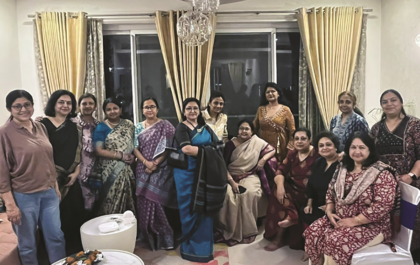Digital literacy is becoming essential today, especially as social media reaches people from all educational backgrounds. In many places with lower educational attainment, users navigate social media to connect with family, and find entertainment. However, the challenge lies in helping users critically evaluate content. Social media has undeniably reshaped communication, learning, and social engagement worldwide. It is a double-edged sword; it brings significant advantages but also poses real risks, affecting users across different age groups. While social media offers a space for connection, knowledge sharing, and entertainment, it can also disrupt real-life interactions; reduce productivity, and foster dependency.
Youngsters, especially school-going children, can be easily distracted by the endless possibilities of social interaction on these platforms. Instead of focusing on academics, many students find themselves absorbed in texting, scrolling through feeds, or engaging in online games, which significantly affect their studies. A lack of parental control and supervision only exacerbates this issue.
For middle-aged individuals, social media can impact productivity and concentration, leading to excessive time spent online rather than engaging in productive or creative pursuits. For some, social media can even create a sense of inadequacy or dissatisfaction when comparing their lives to the seemingly perfect lives shared by others online. Additionally, the ease of spreading misinformation can have serious consequences, leading to misunderstandings, confusion, or even fear-mongering among users.
A significant downside of social media is its impact on in-person communication within families. It is increasingly common to see families in the same household engrossed in their devices rather than engaging with one another. This scenario reflects a growing digital dependency, where family members may feel closer to their virtual friends than to their own family. Senior family members may find that social media helps them pass the time, but they also notice a breakdown in communication within the family, particularly with younger members who seem perpetually distracted by their devices.
One of the major concerns for parents is the challenge of setting a good example and establishing limits for social media use. Many parents themselves struggle with social media habits, making it difficult to enforce strict rules or boundaries with their children. Without clear guidelines, young people are often left to navigate social media on their own, sometimes falling prey to harmful content, cyberbullying, or distractions that hinder their development.
To use social media effectively as a learning tool, individuals across age groups need to approach it with a structured mindset, setting goals and limits for their social media usage.
For each session on social media, it is beneficial to define a purpose. For example, before logging in, users should decide whether they are looking to gather information, connect with family and friends, or develop new skills. Setting these goals can help users avoid getting lost in endless scrolling and distractions, ensuring that time spent online contributes to personal growth.
Social media hosts numerous educational groups and pages across different platforms. These communities provide learning resources, study materials, or expert opinions on subjects of interest. Joining such groups can expose users to various perspectives, discussions, and new ideas.
Time management is essential when using social media. Limiting time spent on these platforms can help users avoid overindulgence and improve productivity, whether at work, school, or home.
Encouraging mindful engagement rather than passive scrolling is important for maximizing the benefits of social media. Such active engagement can lead to meaningful connections, knowledge-building, and a healthier relationship with social media.
One of the best ways to empower individuals, especially youngsters, is to foster digital literacy. Understanding the basics of online safety, verifying information, and recognizing fake news are critical skills in today’s digital world. Schools and parents can play a vital role by teaching children how to responsibly use social media, critically assess information, and avoid potential pitfalls.
For families, it is essential to create boundaries for social media use to encourage face-to-face communication. Setting designated times for social media or “device-free” zones, like during meals, can help foster stronger family bonds. Engaging in family activities, discussing the impact of social media openly, and supporting each other in reducing screen time can create a positive environment for everyone.
Popular Stories
Football Tournament @Princeton
More Than a Festival: The Art and Power of Durga Puja
Personality of the Month- ‘Dr Usha Mediratta’
Stray Cattle Menace In Front of Galleria
The Chronicles of Malibu Towne: A Mosquito’s Tale
“Senior Living Is Not An Old Age Home” say Mr & Mrs Bose
Recent Stories from Nearby
- Araya Samaj Hauz Khas New Delhi December 27, 2024
- AGM At Adhya Jha December 27, 2024
- Petty Thefts on the Rise December 27, 2024
- Water Sprinklers in SDA December 27, 2024
- Town Hall Meeting With Parmila Tokas December 27, 2024






